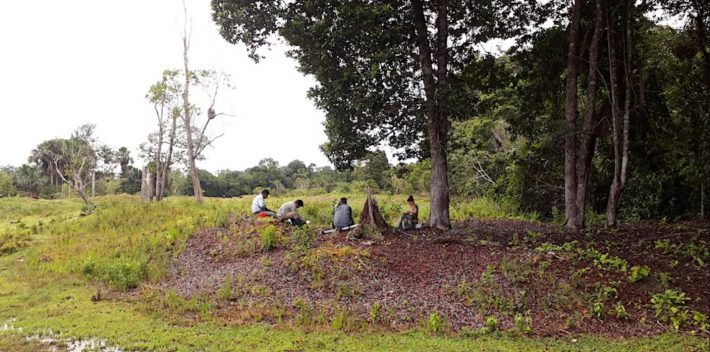Panel Discussion: Ethical fieldwork – avoiding ‘helicopter science’
Join the Conservation Ecology Special Interest Group for a dialogue about fieldwork practices in conservation science, share experiences of (un)ethical conduct and help define solutions.

The concept, and impacts, of helicopter science have gained increasing prominence in recent years. Helicopter science describes the practice whereby researchers from Minority World countries (i.e., the Global North) collect data in a Majority World country (i.e., the Global South), often using local expertise and help, but do not contribute to funding or to supporting capacity for further research in that country, and/or sufficiently recognise the work of local collaborators and engage with the local context.
This online panel discussion is organised by the Conservation Ecology SIG and the BES Policy Team.
Programme
This event aims to create a safe space for researchers to discuss the occurrence and challenges of helicopter research and ways in which it can be avoided. Six panelists have been invited, from Tanzania, Kenya, Madagascar, and the UK, to discuss their experiences as ecologists who have worked in partnerships that include researchers from Majority and Minority World countries. The event will focus on how to build productive and collaborative research partnerships that promote two-way knowledge exchange, capacity building, and fair recognition of work.
The event will last approximately 1 hour and 30 minutes. The first half will involve short introductions from panelists, an introduction to the University of Oxford’s recently published Code of Conduct for Ethical Fieldwork and pre-defined questions for the panel to answer. In the second half, the audience will be invited to ask questions.
The Panel
The panel will comprise the following speakers:
- Herizo Andrianandrasana, Warwick University, UK/Madagascar
- Laura Braunholtz, University of Newcastle, UK
- David Kimiti, Rangeland Ecologist, Kenya
- Catherine Masao, University of Dar es Salaam, Tanzania
- Laura Picot, University of Oxford, UK
- Claire Raisin, Chester Zoo Field Programmes, UK
Registration
We welcome you to join the audience, from any career stage and professional background, whether actively engaged in research/practice or retired, student or professional. Registration will close on 10 March.
If you are interested in becoming a BES member to purchase the BES member rate ticket, you can find out more information and join here. Membership starts from £23, or you can get 12 months free membership if you are an undergraduate, masters, or first year PhD student.
Code of Conduct
The BES code of conduct can be found online at the link below.
Like what we stand for?
Support our mission and help develop the next generation of ecologists by donating to the British Ecological Society.